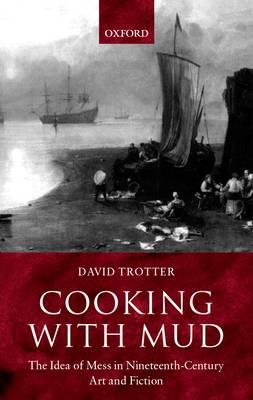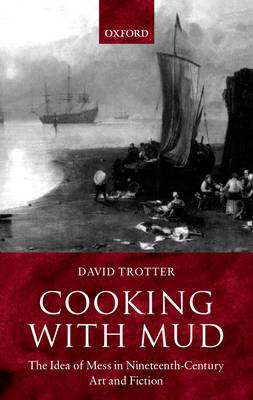
- Afhalen na 1 uur in een winkel met voorraad
- Gratis thuislevering in België vanaf € 30
- Ruim aanbod met 7 miljoen producten
- Afhalen na 1 uur in een winkel met voorraad
- Gratis thuislevering in België vanaf € 30
- Ruim aanbod met 7 miljoen producten
Zoeken
Cooking with Mud
The Idea of Mess in Nineteenth-Century Art and Fiction
David Trotter
Hardcover | Engels
€ 197,45
+ 394 punten
Omschrijving
Mess is age-old and universal, as phenomenon and as topic. The evidence collected in this book suggests, however, that the second half of the nineteenth century saw the first stirrings in Western culture of a primary interest in mess for its own sake. Messes, like modern identities, happen by accident; their representation in painting and fiction made it possible to think boldly and inventively about chance. Ranging widely--from Turner to Degas, and from Melville to Maupassant and the New Woman writers--this book outlines a style of commentary on modern life in which the ancient dichotomy of order and chaos was supplanted by a distinction between different kinds of mess.
Specificaties
Betrokkenen
- Auteur(s):
- Uitgeverij:
Inhoud
- Aantal bladzijden:
- 352
- Taal:
- Engels
Eigenschappen
- Productcode (EAN):
- 9780198185031
- Verschijningsdatum:
- 20/04/2000
- Uitvoering:
- Hardcover
- Formaat:
- Genaaid
- Afmetingen:
- 145 mm x 218 mm
- Gewicht:
- 612 g

Alleen bij Standaard Boekhandel
+ 394 punten op je klantenkaart van Standaard Boekhandel
Beoordelingen
We publiceren alleen reviews die voldoen aan de voorwaarden voor reviews. Bekijk onze voorwaarden voor reviews.











